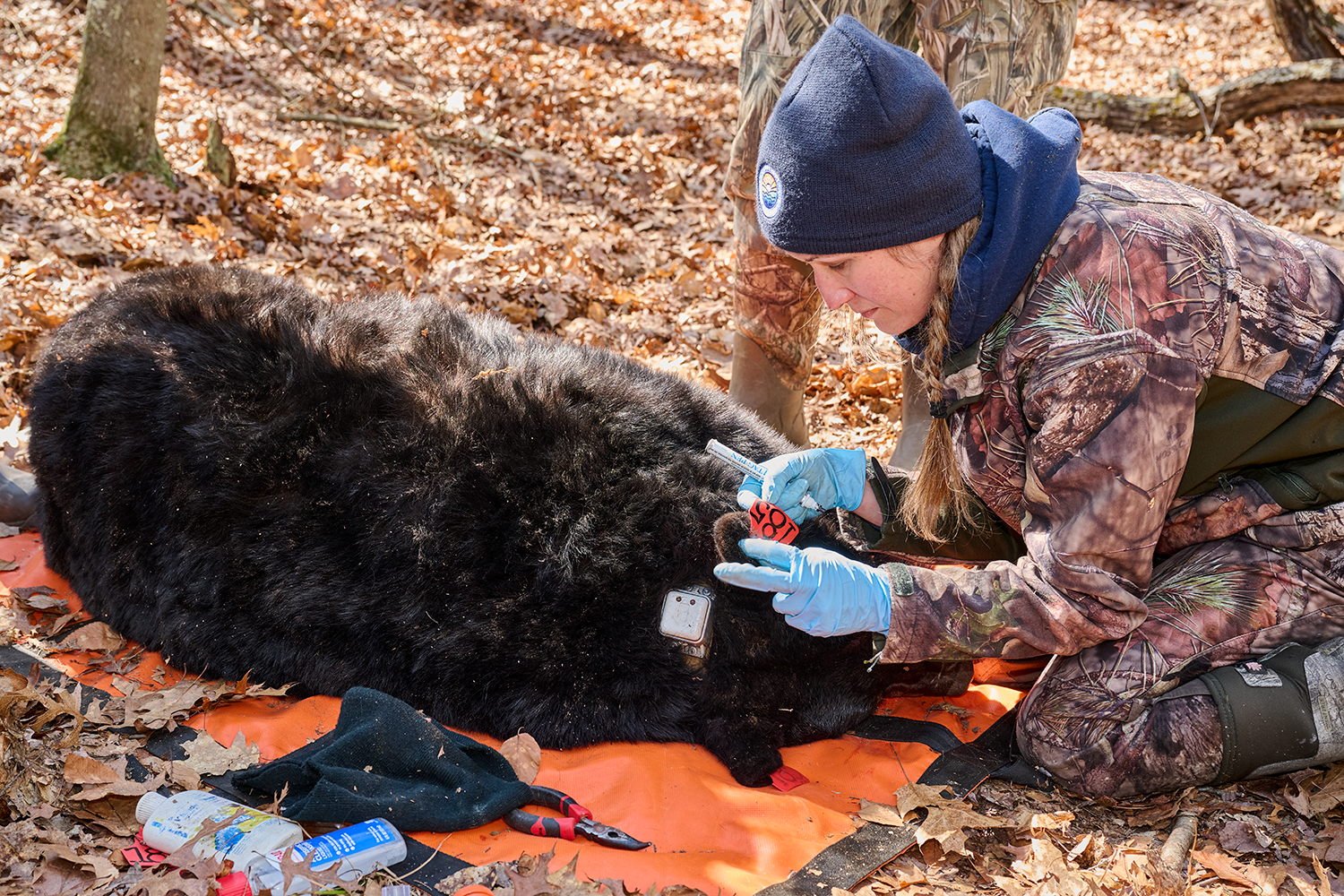3-18-2024

Melissa Ruszczyk replaces the collar on a female black bear in the woods near New Hartford.
Melissa Ruszczyk '09 (CAHNR), '24 MS is studying black bear movement and behavioral changes in response to the availability of human-related food. Here, she is replacing collar batteries and re-marking tags on bears that are part of her thesis project — as a wildlife biologist for Connecticut's Department of Energy and Environmental Protection she offered anthropogenic food to GPS-collared bears and is analyzing movement data and trail camera data to observe their behavior. Her findings may show that high concentrations of non-natural food can alter home ranges and increase strife between bears and other wildlife, which may be similar to what occurs in areas where bears have regular access to human-related food, such as unsecured trash and birdfeeders. "We want our bears to be healthy. We want our wildlife to stay wild," Ruszczyk says.
Photo by Peter Morenus
